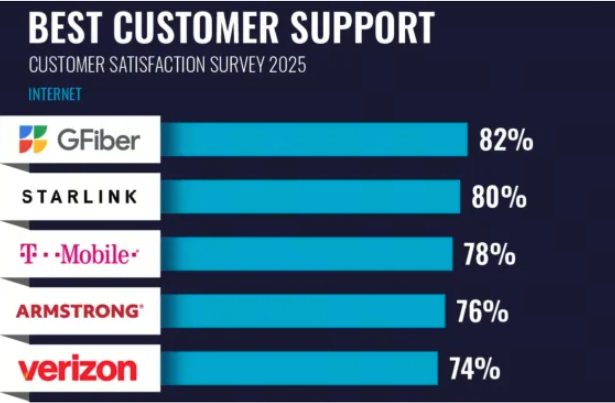
In an era where online education is rapidly evolving, ensuring the quality of Master’s degree programs is paramount. "Accreditation Matters" explores the significance of accreditation in 2025, examining how it influences academic standards, student outcomes, and institutional credibility. This insightful discussion highlights the role of accreditation in fostering trust and excellence in the online learning landscape.
In today's rapidly evolving educational landscape, the importance of accreditation cannot be overstated, especially in the context of online master’s degree programs. As we approach 2025, prospective students must prioritize accredited programs to ensure they receive a quality education that translates into successful careers. This article delves into why **accreditation** matters, the types of **accreditation** available, and how to identify accredited online master’s degree programs.
Accreditation serves as a quality assurance mechanism that validates the academic standards of educational institutions and programs. For students, enrolling in an **accredited online master’s degree program** guarantees that the curriculum meets industry standards and that the education received is respected by employers. In many fields, especially those that require licensure—such as education, healthcare, and engineering—graduating from an accredited program is critical for job eligibility.
Furthermore, accredited programs are often eligible for federal financial aid, making them a more viable option for many students. In contrast, degrees from unaccredited institutions may not only hinder employment opportunities but can also lead to significant financial loss due to unpaid student loans.
Understanding the various types of **accreditation** is essential for students seeking online master’s degree programs. There are two primary types of accreditation: regional and national. Both serve different purposes and are recognized differently by employers and educational institutions.
Regional Accreditation: This is the most prestigious form of **accreditation** in the United States and is granted to institutions that meet high academic standards. Regional accreditation is typically associated with nonprofit colleges and universities, and degrees from these institutions are widely recognized by employers and other academic entities.
National Accreditation: Nationally accredited institutions often focus on vocational or technical programs. While these programs may offer quality education, their degrees may not be as widely recognized as those from regionally accredited institutions. Students should carefully consider their career paths when choosing between the two.
As we step into 2025, prospective students must be vigilant when searching for online master’s degree programs. Here are key steps to identify accredited programs:
1. Check Accreditation Status: Always verify the **accreditation status** of the institution. Websites such as the Council for Higher Education Accreditation (CHEA) and the U.S. Department of Education provide lists of recognized accrediting agencies. If an institution is not listed, it may not be accredited.
2. Research the Program’s Reputation: Look for reviews and testimonials from alumni of the program. A strong reputation can often be indicative of quality. Utilize platforms such as LinkedIn to connect with graduates and gain insights into their experiences.
3. Evaluate Faculty Credentials: Investigate the qualifications and experience of the faculty members. Faculty who are well-respected in their fields often lead to a more enriching educational experience.
4. Consider Program Outcomes: Look at graduation rates, job placement rates, and alumni success stories. Programs that track these metrics often demonstrate a commitment to student success.
With the ongoing growth in online education, the landscape for master’s degree programs is continually changing. By 2025, we can expect even more options for students seeking flexibility and convenience. However, this growth also brings the risk of unaccredited programs entering the market. Therefore, students must remain diligent in their search for quality online education.
Emerging technologies, such as artificial intelligence and virtual reality, are set to revolutionize how online education is delivered. Institutions focusing on maintaining **accreditation** while integrating these technologies will likely provide superior learning experiences. Students should look for programs that not only meet current educational standards but also prepare them for the future job market.
In conclusion, as we look towards 2025, accreditation will play a pivotal role in ensuring the quality of online master’s degree programs. With the proliferation of educational options, students must be proactive in selecting accredited programs that meet their academic and career goals. By understanding the importance of **accreditation**, the types available, and how to identify accredited programs, students can make informed decisions that will positively impact their futures. The journey towards a master’s degree is significant, and choosing an **accredited online program** is a crucial step in ensuring that this investment pays off in the long run.
As you embark on your educational journey, remember: Accreditation matters.

How to Choose the Right Online Master’s Degree Program in the USA for Your Career Goals in 2025

Exploring the Most Popular Online Master’s Degree Fields in the USA for 2025

Cost vs. Value: Analyzing the ROI of Online Master’s Degree Programs in the USA for 2025

Best Online Master’s Degree Programs of 2025

Top 10 Online Master’s Degree Programs in the USA for 2025: A Comprehensive Guide

The Future of Education: Benefits of Pursuing an Online Master’s Degree in 2025

Customer Support and Service Quality: Ranking USA Business Internet Providers for 2025

Affordable Online College Programs in the USA 2025: Get a Degree Without Breaking the Bank